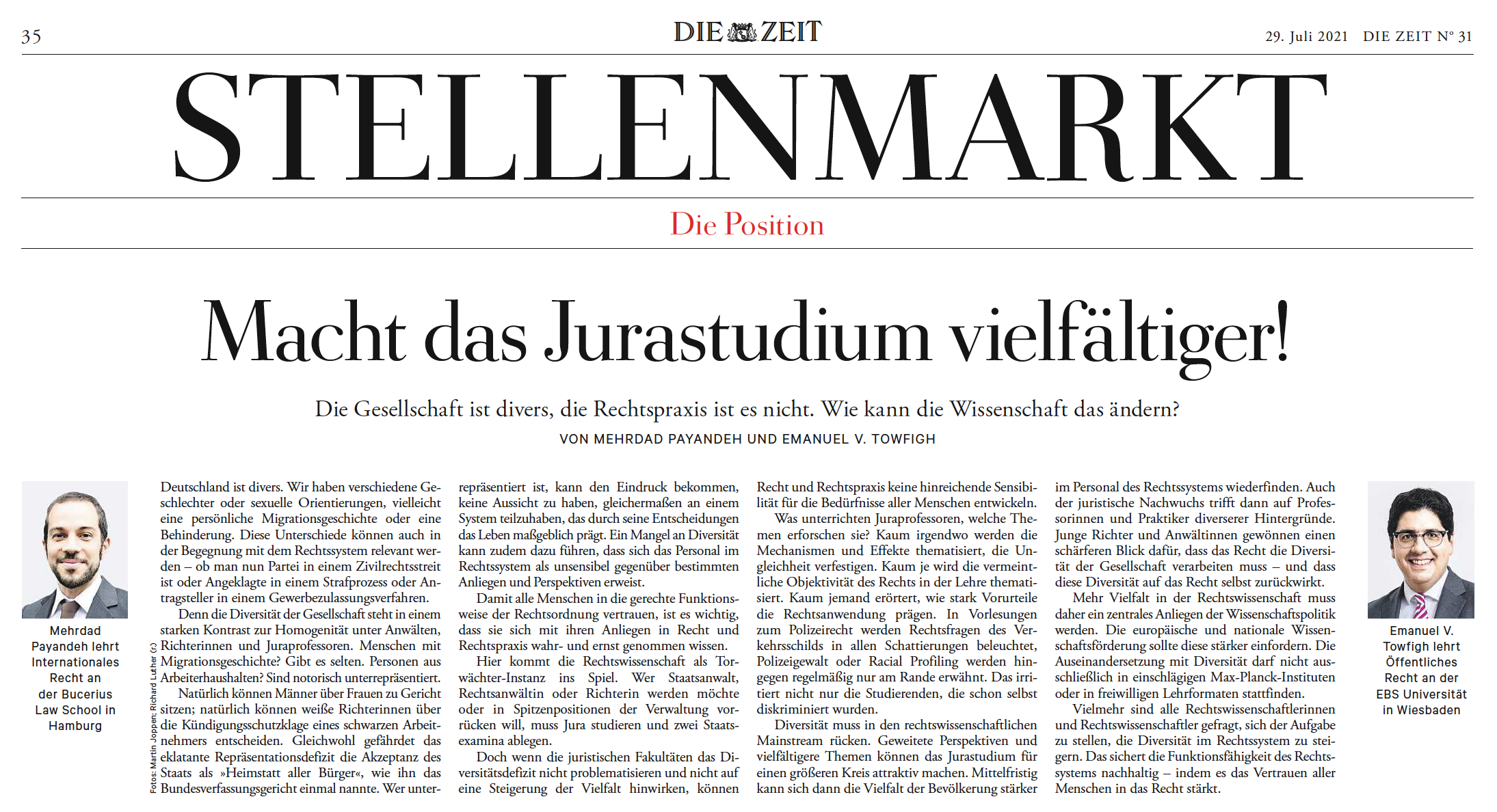Source: DIE ZEIT Nr. 31 from 29 July 2021, p. 35 | Online
Make law studies more diverse!
Society is diverse, but legal practice is not. How can academia change this?
Germany is diverse. We have different genders or sexual orientations, perhaps a personal history of migration or a disability. These differences can also become relevant when encountering the legal system – whether you are a party to a civil dispute, a defendant in a criminal case or an applicant for a business license, because the diversity of society stands in stark contrast to the homogeneity of lawyers, judges and law professors. People with a history of migration? They are rare. People from working-class households? Are notoriously underrepresented.
Of course men can sit in court over women; of course white female judges can rule on a black employee’s unfair dismissal claim. Nevertheless, the blatant lack of representation jeopardizes the acceptance of the state as the “home of all citizens”, as the Federal Constitutional Court once called it. Those who are underrepresented can get the impression that they have no prospect of participating equally in a system whose decisions have a decisive influence on their lives. A lack of diversity can also lead to staff in the legal system proving to be insensitive to certain concerns and perspectives.
For all people to trust in the fair functioning of the legal system, it is important that they know that their concerns are taken seriously in law and legal practice.
This is where law comes into play as a gatekeeper authority. Anyone who wants to become a public prosecutor, lawyer or judge or advance to top administrative positions must study law and pass two state examinations.
But if law faculties do not address the diversity deficit and do not work towards increasing diversity, law and legal practice cannot develop sufficient sensitivity to the needs of all people.
What do law professors teach, what topics do they research? Hardly anywhere are the mechanisms and effects that reinforce inequality addressed. The supposed objectivity of the law is hardly ever addressed in teaching, and hardly anyone discusses the extent to which prejudices shape the application of the law. In lectures on police law, legal issues relating to traffic signs are examined in all their nuances, while police violence or racial profiling are regularly only mentioned in passing. This is not only irritating for students who have already been discriminated against themselves.
Diversity must move into the legal mainstream. Broader perspectives and more diverse topics can make studying law attractive to a wider audience. In the medium term, the diversity of the population can then be reflected more strongly in the staff of the legal system. Young judges and lawyers will gain a clearer view of the fact that the law has to deal with the diversity of society – and that this diversity has an impact on the law itself. More diversity in law must therefore become a central concern of academic policy. European and national science funding should demand this more strongly. Diversity must not be dealt with exclusively in the relevant Max Planck Institutes or in voluntary teaching formats.
Rather, all legal scholars are called upon to take on the task of increasing diversity in the legal system.
This will ensure the long-term viability of the legal system – by strengthening the trust of all people in the law.
[Translated by DeepL]
